POLICIES
The Reykjavik International Film Festival – RIFF, is a dynamic event that evolves every year. This ever-changing environment fosters exciting and creative working conditions, which can also be quite challenging. Therefore, it is crucial to have robust processes in place to ensure transparency and high standards of work.
RIFF has established policies on sustainability, accessibility, and an employee policy that includes an Equal Opportunities and Conduct Policy. The current policies were approved by RIFF's management in June 2024.
OBJECTIVES
MARKMIÐ
The objective of RIFF's employee policy is to maintain a team of qualified, reliable, and enthusiastic staff who work cohesively to prepare the festival.
The policy aims to foster a positive work environment and conditions where respect and equality characterize all interactions. Emphasis is placed on ensuring that employees are well-informed about their duties and responsibilities and demonstrate accountability and initiative.
RECRUITMENT AND RECEPTION OF NEW EMPLOYEES
Job openings at RIFF are open to all applicants. The selection of staff is based on professional practices and principles of equality. Emphasis is placed on welcoming new employees and educating them about the festival's operations, tasks, and other relevant matters.
SHOP STEWARD
RIFF appointed a shop steward on June 1, 2024. The position of the shop steward is reviewed annually at the beginning of the working year.
The role of the shop steward is to be available for colleagues, monitor their well-being and job security, facilitate communication with the employer, and disseminate information.
VALUES
RIFF staff adhere to specific values in their work.
These values are joy, initiative, drive, and professionalism.
JOB SATISFACTION AND WORK ENVIRONMENT
Emphasis is placed on maintaining a good work environment where employees feel comfortable. Everyone contributes to creating a positive work atmosphere. Interactions are characterized by honesty, respect, and trust. Employees are encouraged to express their opinions about the workplace. In all cases, suggestions should be directed to the immediate supervisor or confidential advisor. In the event of a dispute, employees commit to following the guiding processes, as per RIFF's anti-harassment policy (below).
EQUALITY
Emphasis is placed on employees enjoying the rights stipulated by laws, regulations, and agreements on equality issues. Full equality is maintained in all festival work and tasks.
RIFF'S ANTI-HARASSMENT POLICY
INTRODUCTION AND OBJECTIVES
The goal of RIFF's anti-harassment policy, prevention, and response plan is to ensure resources and promote prevention and procedures to address anti-harassment (bullying, gender-based harassment, sexual harassment, and violence) issues. This policy is based on similar policies from public authorities and aligns with the provisions of Act No. 46/1980 on working conditions in Iceland, health, and safety at workplaces, and Regulation No. 1009/2015 on measures against harassment at workplaces.
POLICY
RIFF places great emphasis on creating a safe and healthy working environment for employees and partners. Bullying, gender-based harassment, sexual harassment, and violence are not tolerated, and all reports of such will be taken seriously. The following prevention and response plan should be followed in harassment cases.
TO PROMOTE EMPLOYEE WELL-BEING AND SAFETY, THE FOLLOWING WILL BE EMPHASIZED
Regularly review the effectiveness of methods and after a harassment case.
Train managers in anti-harassment procedures and handling complaints, emphasizing empathy and active listening.
Educate employees about the characteristics, consequences, and procedures of harassment-cases as needed.
Make procedures visible and accessible on RIFF's internal website and in employee manuals.
RESPONSE PLAN
Responsibility and Role
RIFF employees share the responsibility of creating a safe working environment. If an employee experiences, witnesses, or has a justified suspicion of a harassment-incident, they should report it to their immediate supervisor or human resources manager. RIFF can also consult specialists in harassment-issues for support and advice.
Case Discussion
Discussion provides an individual the opportunity to talk about their experience in a safe setting without filing a formal complaint. Information is provided about formal procedures and support resources.
Formal Procedure
A formal procedure begins if an employee files a formal complaint about a harassment-incident. The formal handling of the case involves investigating the facts, gathering information, and reaching a conclusion. The following procedure is observed:
The report is received by the HR manager/manager.
An impartial investigation and processing begin, possibly with the assistance of specialists.
Information gathering and interviews with the parties involved, and collecting evidence.
Processing of data and presenting the conclusion to the parties involved.
Follow-up: Providing follow-up to the parties involved and offering additional resolution methods if needed.
Definitions
This policy and response plan are based on the following definitions according to Regulation No. 1009/2015 and Act No. 150/2020: Bear in mind that this is a guiding translation by RIFF staff on June 2024 - some official terms may vary.
Einelti: Síendurtekin hegðun sem veldur vanlíðan, svo sem að móðga, særa eða ógna.
Kynbundin áreitni: Hegðun tengd kyni, sem misbýður virðingu og skapar ógnandi aðstæður.
Kynferðisleg áreitni: Hvers kyns kynferðisleg hegðun sem misbýður virðingu og skapar niðurlægjandi aðstæður.
Ofbeldi: Hegðun sem veldur eða gæti valdið líkamlegum eða sálrænum skaða, einnig hótun um slíkt.
SUSTAINABILITY POLICY
How Does the Film Industry Relate to Sustainability?
In recent years and decades, the film industry has undergone a revolution in terms of sustainability. The industry's responsibility is multifaceted, impacting not only the tangible environment with green initiatives. Keeping in mind that large international film productions can certainly have a significant carbon footprint if not properly managed.
However, the economic and cultural impacts of films should not be underestimated. There has been significant discussion about social responsibility at all stages of film production, from screenwriting and casting, to the choosing of a location, to the final edits before release.
How Can a Film Festival Be Sustainable?
The international festival industry has had to introspect in recent years. Event managers of large international film festivals, music festivals, literature festivals, and other cultural festivals need to take responsibility and adopt a "sustainability lens" in every decision.
It's a well-proven fact that increased inclusion has an impact. Society owes much to pioneers in this field. Representatives of marginalized groups from various social sectors have sacrificed themselves decade after decade to elevate stories, break the silence, and highlight previously untold narratives. Every film production decision about whose stories is told matters. By denying certain social groups visibility in films, harmful synergies are created. By choosing and supporting diverse stories, we can empower those marginalized in society and break harmful stereotypes.
Green sustainability
What Are Others in this field Doing to Reduce Their Carbon Footprint?
International film festivals have been working to reduce their carbon footprint and increase sustainability through various measures.
CPH:DOX
The Copenhagen International Documentary Film Festival, a member of SMART7 network alongside RIFF, is actively reducing its carbon footprint through various initiatives. These include implementing green practices like waste reduction and energy conservation, engaging in carbon offsetting activities, promoting sustainable transportation options for attendees and staff, embracing digitalization for screenings, selecting eco-friendly venues, and partnering with sustainable suppliers and sponsors. By integrating these measures, CPH:DOX demonstrates its strong commitment to environmental stewardship and aligns with global efforts to mitigate climate change.
Cannes Film Festival
Kvikmyndahátíðin í Cannes hefur tekið upp umfangsmiklar aðgerðir til að draga úr umhverfisáhrifum. Hátíðin hefur minnkað notkun á pappír um 50% með því að færa útgáfur yfir á rafrænt form og skala niður prentupplag. Allri notkun á einnota plastumbúðum hefur verið hætt, og vatnsbrunnar settir upp í staðinn. Notkun á endurnýjanlegum orkugjöfum og rafmagnsbílum hefur verið aukin til muna, og gestir hvattir til að nýta almenningssamgöngur með sérstökum ferðapössum. Þá hefur hátíðin tekið upp „græna“ staðla fyrir veitingasölu, með áherslu á staðbundnar og árstíðabundnar vörur, ásamt því að bjóða upp á grænmetisfæði.
The Venice Film Festival
Kvikmyndahátíðin í Feneyjum (La Biennale di Venezia) gefur sig út fyrir að vera kolefnishlutlaus. Áætlunin fól í sér orkuskipti yfir í raforku frá endurnýjanlegum orkugjöfum, auk endurvinnslu og endurnýtingu hráefna, og kolefnisjöfnun með kaupum á kolefniskvóta. Hátíðin gefur forgang að birgjum sem hafa umhverfisvottun, nota endurnýjanleg hráefni og sýna umhverfismeðvitund í verki. Hátíðin náði yfirlýstu markmiði sínu um kolefnishlutleysi árið 2021.
How Do Film Festivals Benefit Society?
Despite appearing inherently unsustainable, research has shown that international film festivals have positive economic and social awareness impacts in societies aiming for sustainability and environmental conservation.
Menningarlegt gildi og varðveisla menningararfs: Kvikmyndahátíðir stuðla að varðveislu menningararfsins og fræðslu þar að lútandi. Þær bjóða upp á vettvang fyrir kvikmyndagerðarmenn að sýna verk sín og stuðla þannig að fjölbreytileika í kvikmyndagerð. Rannsóknir hafa sýnt fram á að kvikmyndahátíðir auka menningarvitund fólks og hafa jákvæð áhrif á samfélög sem hafa sjálfbærni og inngildingu að leiðarljósi.
Hagræn áhrif: Kvikmyndahátíðir skapa verulegar tekjur fyrir borgirnar sem halda þær, auk þess að skapa störf og stuðla að vexti í ferðaþjónustu og tengdum greinum. Hér má vísa til rannsóknar frá European Audiovisual Observatory (einnig hér), sem sýnir að fjárhagslegur ávinningur af kvikmyndahátíðum getur vegið upp á móti umhverfisáhrifum þeirra.
Virk umhverfisstefna: Fjölmargar kvikmyndahátíðir nýta vettvang sinn markvisst til að vekja athygli á umhverfismálum og stuðla að sjálfbærara samfélagi, með vali á kvikmyndum og jafnvel kvikmyndaflokkum sérhæfðum í sjálfbærni og umhverfismálum.
Sjálfbær skipulagning og framleiðsla á hátíð: Margar kvikmyndahátíðir hafa tekið upp sjálfbærar aðgerðir til að minnka kolefnissporið. Dæmin sýna að stórar hátíði
ACCESSIBILITY POLICY
Aðgengisstefna Alþjóðlegrar kvikmyndahátíðar í Reykjavík – RIFF, miðar að því að tryggja að allir einstaklingar, óháð fötlun, geti tekið þátt í viðburðum og sýningum hátíðarinnar. Þetta felur í sér bætt aðgengi að byggingum og þeim viðburðum sem þar fara fram, auk þess að stuðla að inngildingu og gera viðeigandi ráðstafanir til að koma til móts við sem fjölbreyttastan hóp.
Innleiðing aðgengisstefnu RIFF fer fram í skrefum, hverra stærð og fjöldi tekur mið af stærð starfseminnar og fjármagni hverju sinni. Árið 2024 miðar hátíðin að því að tryggja fullt aðgengi fyrir alla hreyfihamlaða hátíðargesti og bæta aðgengi að upplýsingum með auðlesnu efni á vef og í hátíðarbækling. Markviss vinna með sérfræðingum og hagsmunasamtökum hófst 2024 og staða aðgengisfulltrúa hefur verið stofnuð.
Hátíðin miðar að því að halda áfram að þróa og bæta aðgengið, breikka þjónustuhópinn og vinna að stærra markmiði, að allir sem vilji geti notið sýninga á RIFF, óháð fötlun. Jafnframt, að sértæk úrræði á vegum hátíðarinnar mæti þeim hópum sem þess þurfa.
Lykilhugtök
Aðgengi: Að tryggja að þeir sem þurfa geti sótt sýningar og viðburði, þar með talið aðgengi að byggingum og viðburðinum sjálfum, og gera viðeigandi aðlögun.
Inngilding: Leitast við að fatlaðir einstaklingar geti tekið þátt í viðburðum eftir getu og áhuga, og taka þeirra sjónarmið inn í framkvæmd viðburða.
Viðeigandi aðlögun: Aðlaga aðstæður þannig að sem flestir geti tekið þátt, til dæmis með því að breyta umhverfi til að stuðla að inngildingu.
RIFF 2024 – Bætt aðgengi fyrir hreyfihamlaða gesti
Árið 2024 gerir RIFF ráðstafanir til að tryggja aðgengi fyrir notendur hjólastóla og einstaklinga með hreyfihamlanir. Þetta felur í sér:
Að tryggja að hjólastólanotendur og fólk með hreyfihamlanir geti sótt sýningar og viðburði á þægilegan hátt og að gert sé ráð fyrir aðgengi á öllum viðburðum og sýningum RIFF. Sömuleiðis, að upplýsingagjöf og þjónusta sé í boði á öllum sýningum.
Stöðu aðgengisfulltrúa RIFF sem er tengiliður fyrir einstaklinga og hagsmunasamtök fatlaðra.
Að veita aðstoðarfólki fatlaðra ókeypis aðgang að viðburðum.
Fræðslu fyrir starfsmenn og sjálfboðaliða á vegum RIFF.
Árið 2024 mun RIFF framkvæma ráðstafanir sem mæta þörfum ákveðinna hópa með kynningarefni á auðlesnu máli. Þetta felur í sér:
Vefsvæði á vef hátíðarinnar riff.is þar sem upplýsingar um dagskrá og sérviðburði má finna á auðlesnu máli.
Framsetningu á aðgengisstefnu RIFF á auðlesnu máli á vefsvæði RIFF.
Participation in UngRIFF
RIFF promotes validation and appropriate adaptation for disabled visitors to the UngRIFF children's film festival. The festival undertakes to discuss with experts and interest organizations of disabled people in the development work and implementation of UngRIFF.
Training for staff
RIFF will offer training for staff and volunteers about the needs of different groups, provided by organizations such as Sjálfsbjörg and Þroskahjál. An Accessibility Officer will be available to review the policy periodically. The festival seeks to recruit staff with a diverse background and explore the possibility of recruitment and innovation grants in collaboration with organizations such as the Norwegian Labor and Employment Agency.
Future plans – RIFF for everyone
RIFF commits to development and concept work, where accessibility must be increased year by year. RIFF thus intends to continuously improve access to the festival under the slogan: RIFF for all. This includes plans for special exhibitions in the coming years, to offer subtitles, sound meshes and special performances for people on the autism spectrum or with sensory processing difficulties. The festival aims to meet the needs of hearing-impaired audiences with sign language interpretation, text interpretation and other resources. RIFF requests the cooperation of state and local authorities and funds that support individuals with special needs, so that the dream of RIFF for everyone can become a reality.













